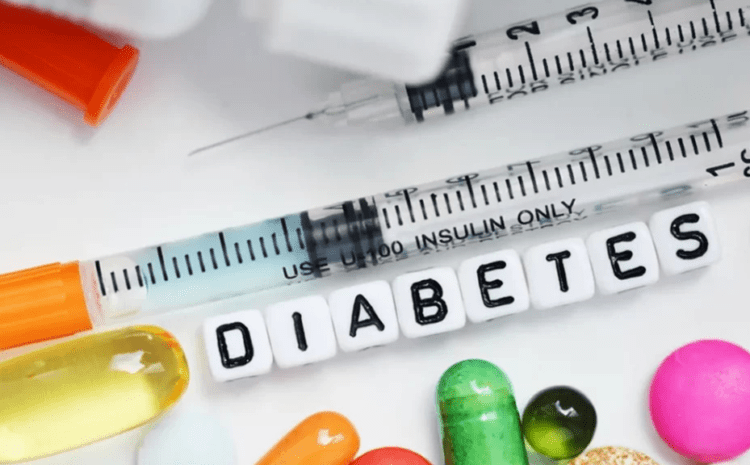DIABETES: Types, Symptoms, Risk Factors, Tests

Diabetes is a condition when our body is not able to process blood sugar, resulting in extra sugar in the blood stream. If not controlled properly (timely), diabetes can harm multiple organs like kidney, heart, eyes etc.
How it works
When we eat food, it is broken into simpler form by the process of digestion in stomach and intestine. For example, if we eat chapati/rice, it gets broken into glucose. This glucose is then released into the blood stream to be used by different body parts. Absorption of glucose by the different cells of the body requires a hormone called insulin which is secreted by an organ called pancreas, present near our stomach. So insulin plays a pivotal role in the entire process. Diabetes can happen in two cases. One, when body does not produces enough insulin Secondly, when enough insulin is produced but body cells do not respond to it.How many types of Diabetes is there?
- Type 1 diabetes It falls under the category of autoimmune disease. Autoimmune disease are those disease in which our own immune system attacks own organs/tissues. In this case, our immune system attacks the beta cells(responsible for insulin production) present in pancreas. It is not very prevalent and is diagnosed at early age. Patients suffering from Type 1 diabetes have to take insulin on regular basis.
- Type 2 diabetes In this case, our body does not respond to the insulin produced in the body. The sugar starts building up in the blood stream. It can also occur at any age but is more prevalent middle aged people.
- Gestational diabetes This type of diabetes occurs in women during pregnancy. It does not occur in all expecting women.
What are the common symptoms of Diabetes?
Symptoms depend on the level of blood sugar in body and varies from patient to patient. Some of the common symptoms are:-- Increased thirst
- Frequent urination
- Extreme hunger
- Weight loss
- Fatigue
- Vision problems
- Sores in legs
- Frequent viral and bacterial infections
RISK FACTORS
Type 1
It is a hereditary disease so family history is a major risk factor.TYPE 2
Major risk factors for Type 2 diabetes are :-- Overweight
- Age above 45
- Low or no physical activity.
- Had gestational diabetes
- High blood pressure
- High cholesterol
What are the possible complications of diabetes?
Diabetes affect major body organs with time. Risk of complications increases with time which can be life threatening. Below are some of the organ wise complications.Heart
Risk of cardiovascular diseases increases over time with diabetes. High blood glucose level affects the heart vessels and leads to inflammation and stiffness in the blood vessels causing heart pain, heart attack and stroke.Nerves
High glucose level can damage the capillaries which in turn affects the nerves especially in legs. It causes tingling and numbness. If left untreated, it can lead to amputation of the limb.Kidney
Kidney also contains a delicate network of very tiny blood vessels. These vessels help in filtration of blood. High blood sugar damage these blood vessels and can result in kidney failure.Eyes
Blood vessels in retina can get damaged due to high blood sugar levels causing cataract or blindness.Skin
Diabetes increases the risk of fungal and bacterial infections.What are the blood test to detect and manage Diabetes.
- Blood Sugar Level- Fasting and post prandial(after meal)
- Hba1c Average 3 month sugar level
- Insulin Level are low in diabetes
- GAD Antibody This antibody act against the GAD formation in body. High levels of GAD antibody are seen in pre diabetes cases.
- HOMA Index The homeostatic model assessment is a method used to quantify insulin resistance and beta cell function.
